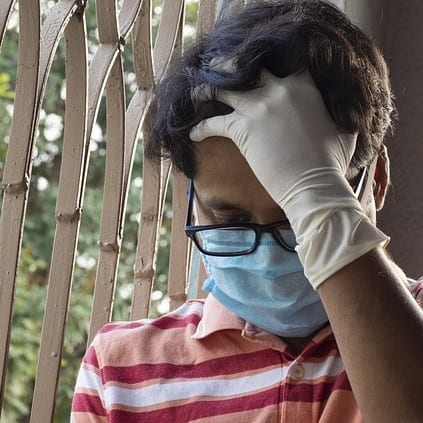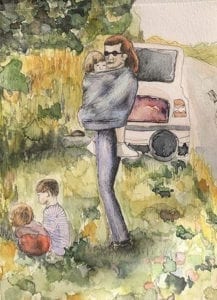NAMI, the nation’s foremost agency for mental health, defines depression as “more than just feeling sad” or just a “rough patch” in our lives.
Doctor Susan Noonan reported on the subject for Psychology Today as it applies to people affected physically or mentally by COVID-19.
Dr. Noonan offers some strategies to help people cope with the stressors that accompany the pandemic.
Observing people at this stage of coping with COVID-19, the doctor notes fear and anxiety as well as other related signs of stress such as:
- Fearing the unknown
- Fear of contracting the virus
- Fear for others in the family
- Uncertainty about the future
- Economic instability
- Changes in medical visits and treatment
- Loneliness
Unfortunately, coverage by the media often distributes rapidly changing information which is sometimes confusing and contradictory. This adds to a person’s fears.
The Most Susceptible
People who have occasionally experienced depression or people who have exhibited symptoms of bipolar disorder are the most susceptible to COVID-19 related depression.
Dealing with these life changes calls for a tremendous effort. Other changes that can contribute to depression include:
- Lack of peer support groups and in-person contact
- Loss of routine and daily purpose during confinement
- Changes in dietary and exercise habits
- Resulting changes in sleep schedules
Dr. Noonan offers ideas about managing anxiety and depression during the pandemic.
Adapt and Accept
People who are able to accept the new reality of the pandemic and also adapt to new circumstances have a better chance of maintaining emotional stability.
This means being able to continue those meaningful things in life that have a special purpose.
Keep Busy
Keeping up with family, personal care, yard work, cooking, baking, household chores, and work routines are essential. Maintaining structure and purpose is key to keeping the body’s system running smoothly. This in turn adds to wellbeing.
Connect
Reach out to friends, family, others either by phone or social networking. Make the effort. Plan special activities such as board games, group exercise, and music, with your friends on social media.
Limit the News
Although it is important to stay informed, it is safer to limit exposure to news. Two brief periods twice each day, not at bedtime, should be sufficient. If possible, be sure the facts you are receiving are accurate and from sources that are reliable.
Coping Strategies
Any or all of these coping strategies may help with depression: hobbies, pets, exercise, yoga, and music. Also, reach out through chat rooms and online support groups.
Techniques such as mindfulness and CBT strategies are designed to address negative thoughts and improve symptoms of depression.
The Basics
Dr. Noonan points out the most basic support for depression that does not respond to even the best efforts is to seek counseling.
Although it may be obvious, emphasis must also be placed on personal care. After showering, it is important to get dressed rather than remaining in pajamas or sweats all day.
Most health advice includes getting regular sleep. Develop a routine of going to bed and rising at the same time. Dr. Noonan advises against maintaining late hours or taking naps as getting fragmented sleep has a negative effect on depression.
Dr. Noonan emphasizes having three healthy meals daily. She notes that the brain requires fuel and a schedule of regular meals will stabilize blood sugar. This in turn will have a positive effect on brain and mood function.
Take medications as prescribed. Ordering a ninety-day supply will avoid anxiety.
Avoid street drugs, alcohol, excess caffeine, and tobacco.
Exercise, as well as spending time outdoors each day, is just as important as sleep. Staying physically active maintains not only mental but also physical health.
Although many people are not aware, clutter causes feelings of being uneasy or lethargic. The home environment should be neat, organized, and clean. When you do laundry, immediately fold it and Dr. Noonan notes that some people even enjoy the “soothing ritual” of ironing.








